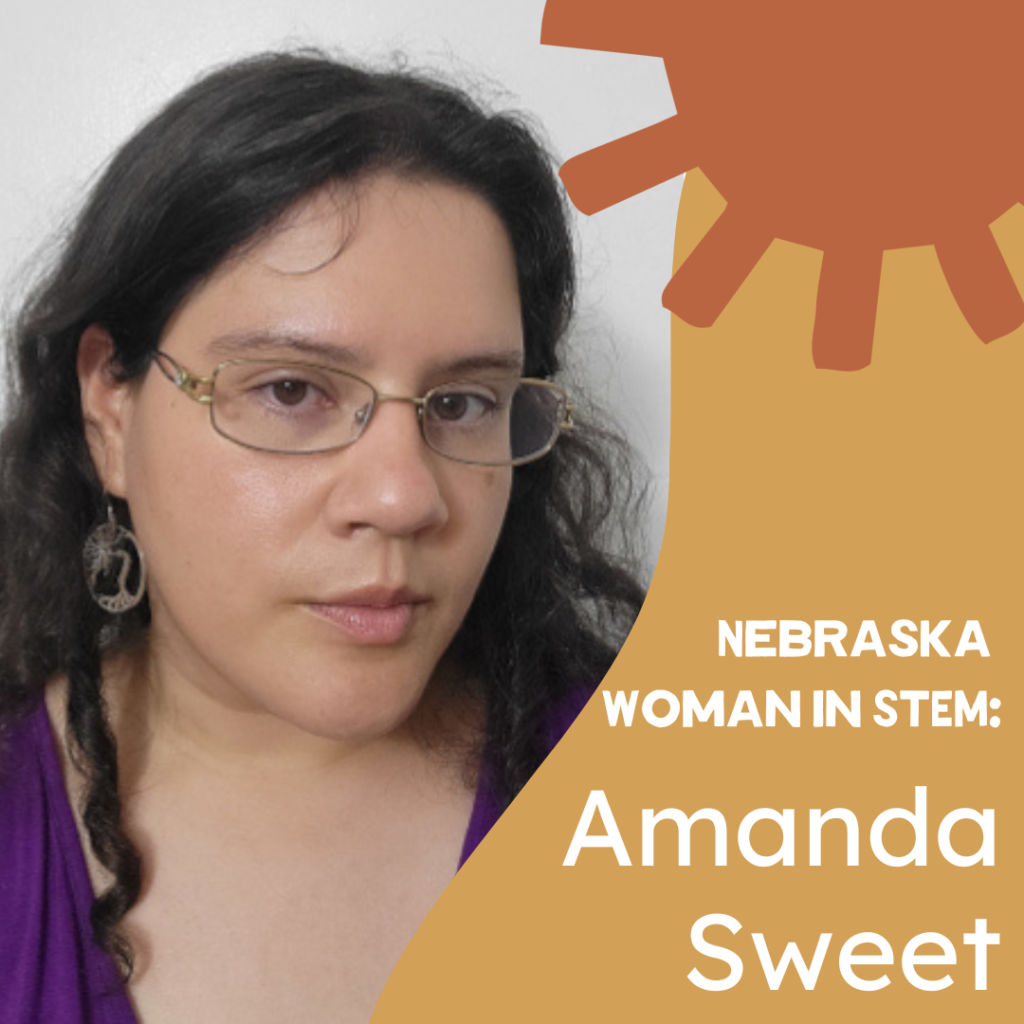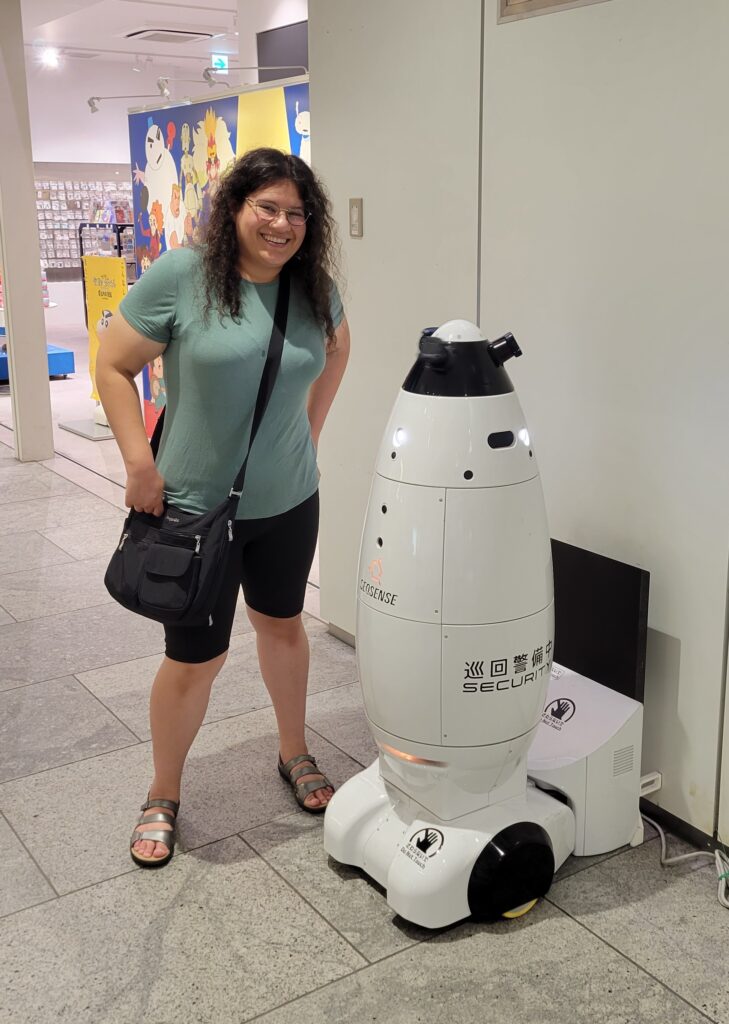Nebraska Women in STEM talked to Amanda Sweet about using technology to solve societal problems.

“I help libraries support their communities in entrepreneurship, innovation, workforce development, and STEM and STEAM technology. I connect communities with technology that can make a difference.”
This is how Amanda Sweet defines her job as the Nebraska Library Commission’s Technology Innovation Librarian. It is a position that is relatively new to the commission and one she helped develop over time.
Originally from Wisconsin, Amanda received her master’s degree in Library and Information Sciences from the University of Wisconsin-Milwaukee in 2016. When she was pursuing her master’s degree, there was no formalized training program to become a technology librarian.
After graduating, she came to Nebraska in 2017 to work for the Nebraska Library Commission. She started in the Talking Book and Braille Library where she worked with the blind and visually impaired for two years. There she learned how to use adaptive technology.
“I got into library technology because the website for the Talking Book and Braille Library Service wasn’t accessible. I had taken a web design class, so I revamped the website and then applied for and was hired into the Tech Innovation Librarian position. It opened up a new world.”
Early in the role, she took a van full of technology, including 3D printers, laser cutters, and robotics, to libraires across the state to train people on how to use it. While that was rewarding, the project didn’t have the desired impact on communities. She saw the need to do things differently and introduce technology with purpose.
“I wanted to find out how to apply technology to solve community problems. It took me 5+ years to figure out how to map innovation ecosystems and map the networks of organizations addressing things like affordable housing, food access, and substance use.”
“When I found the organizations doing this work, I was able to understand the problems they were facing and how they might be able to leverage new and emerging technology to solve those problems.”

Today, Amanda works at the national level to rebrand libraries as key anchors to introduce technology and strengthen communities.
Amanda says that while a lot of women work at libraries, very few specialize in emerging technology. When she travels to national events, the vast majority of tech librarians are men. “A lot of times, I’ll be the only female presence in the room. Sadly, I had grown accustomed to that fact until it faded into the background. Then one day, women in the field started to email me. They saw me in a way I had never seen myself. An innovator. A leader. A technologist. This new way of looking at myself took some getting used to. It still does.”
Despite tech entrepreneurial builders being mostly men, she sees many women working to build ecosystems, like Julie Sigmon at Omaha STEM Ecosystem and Laurel Oetken at Tech Nebraska. She calls them a “binding presence.”
Amanda feels more women would be interested in technology careers if they were marketed for the role technology can have in making our lives better and to solve community problems.
“If you say this has a direct impact on the things you are experiencing in your life every single day and learning this skill will help solve this problem, that’s what makes people interested in doing it. It is a link that has not been strengthened yet.”